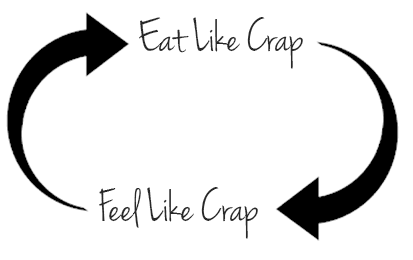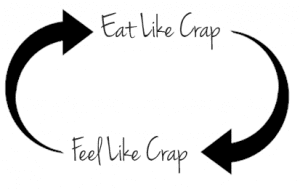What is your biggest obstacle to living a healthy lifestyle? If stress comes to mind, you are not alone.
OMG! I’m so stressed out!
You have either heard or said this. Life gets overwhelming, stress levels rise, and we feel we might explode. We know that we either have too much stress or we’ve been stressed for too long and something’s got to give.
Other times, stress isn’t as obvious. It may be the result of an unhealthy relationship we’ve stayed in for too long, poor nutrition, too much or the wrong kind of exercise, not enough sleep, or any other number of reasons.
Stress Indicators
Stress indicators can include injury, headaches, cold sores, a change in your bowels, acne, muscular pain, weight gain or loss, fatigue, digestive distress, histamine issues or other illness or even disease. You may miss appointments or snap at loved ones.
But I don’t feel stressed out
We don’t always feel stressed but that doesn’t mean we are not putting too much stress on our body. As an athlete, you may be training with people better, faster and stronger. This is a great way to improve and challenge yourself, however, you need to know your limits, and build in recovery training and time. Or perhaps your job, finances or a relationship is causing subtle anxiety which puts stress on your organs, emotions, and immune system.
Reducing Stress
So how do you maintain a healthy lifestyle and optimize wellness? How do we reduce stress in our lives and ultimately in our bodies so that we can live a healthy lifestyle?
- Write it Down
Writing out your schedule can paint a clear picture as to whether you are out of balance. Track your activities for a week. Include athletics, work, second job, hobbies, and activities. Include driving time. Are there areas you can cut back on or postpone? - Learn to say no.
Sometimes we are so busy that the things we do are no longer fun. Examine each obligation on your social calendar. It is perfectly acceptable to say no with grace and ask for a raincheck. - Identify the cause
Look closely at each area of your life and assess whether it is stress producing or stress releasing: your job, relationships, finances, etc. Where can you make changes? - Nutrition
There is an unhealthy cycle when it comes to diet and nutrition: when we eat like crap, we feel like crap AND, when we feel like crap, we eat like crap. Break the cycle! Don’t wait to feel good to eat good, you must start eating better in order to feel better.
Break the cycle! Don’t wait to feel good to eat good, you must start eating better in order to feel better.
- Exercise is part of a healthy lifestyle, however, we must look at what is called an intensity-to-recovery ratio. How quickly can your body recover compared to how intense you are working out? It is common to think more is better but that is not always the case. Jimmie King, sports nutritionist, personal trainer and West Point Grad recommends doing cardio three to five times per week for twenty to sixty minutes and strength training twice a week.
- Play
Even kids have a built-in recess at school where we get outside, run around and release stress. - Yoga and Meditation, when practiced daily can help you relax, concentrate, control stress and manage anxiety.
- Breathe
Breathing is so automatic we forget we are doing it. However, when we tune in, slow down and deepen our breathe, we can refocus, calm our emotions and relax. Breath work can affect our cardio, brain, digestion, even our immune system. - Nature
There is something about being in nature that nurtures the soul and reduces stress. - Ease or struggle?
Sometimes you are in a season of our life where you can’t slow down. If you can’t remove obligations, you can choose to do things with ease. Focus on relaxing. Release the struggle. Change your mantra from “life is so hard” to “I do all things with ease.” - Efficiency
Does your business require a lot of phone time? How long are your phone calls? Can you cut them in half? Let people know at the beginning of the call how much time you have. Set a timer and get right to business. - Social media has many benefits and, it can be a major distraction and time stealer. Set a limit per day and use a timer. Stick to it.
- Guard your mornings
One email or negative post first thing in the morning and the day is off to the wrong start. At the very least, your brain gets activated and puts you into work mode before it needs to be. Guard your mornings. Ease into your day with loved ones or in pleasant solitude. - Guard your evenings
What you do in the final hours before bed will affect the quantity and quality of your sleep. Turn electronics off at least one hour (or more) before bed. According to John Gray, Ph.D., author of Men Are from Mars, Women Are from Venus, television will relax a man’s brain and stimulate a woman’s brain. Jim and I found this to be true. We like to be in the same room at night, but I find even the sound of the television distracting to my reading. He simply wears headphones. - Sleep
Calming teas, essential oils, and melatonin spray can increase the quantity and quality of your sleep. Good quality sleep can reduce the stress on your body. - Vacation and Time to Unplug
Vacation and recreation provide time to heal, recover and restore. What are you doing annually, quarterly, monthly, weekly, and daily to take a time out? - Detox.
Caffeine, sugar, salt, gluten can all add stress to your body. A simple detox for several weeks will help you determine if certain foods are adding stress to your body or helping to remove it. A nutritional cleanse and replenish is always a good idea. - Acupuncture, Massage, Reiki and other energy work, and float therapy can be very effective at reducing stress.
Uncontrolled stress can be a major obstacle to living a healthy lifestyle. Take steps today to reduce its impact on your body, mind, and spirit.
Did you miss obstacle #1? Read about how the people in our life can support us or sabotage us in The Threat of Being a People Pleaser.
Want to learn more about our nutrition or coaching programs? Visit LivingLifeMoreAbundantly.com


 Break the cycle! Don’t wait to feel good to eat good, you must start eating better in order to feel better.
Break the cycle! Don’t wait to feel good to eat good, you must start eating better in order to feel better.
